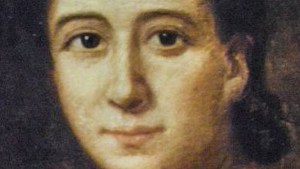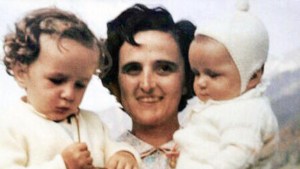Recently, the bishops of California made a statement regarding the attacks on the statues of St. Junipero Serra in San Francisco, Ventura, and Los Angeles. While acknowledging that there are legitimate concerns about racism both historical and contemporary, we insisted that the characterization of Serra as the moral equivalent of Hitler and the missions he founded as tantamount to death camps is simply unconscionable.
I put a link to this statement on my own Word on Fire social media accounts and was gratified to see that many people read it and commented upon it. My purpose in this article is not to examine the specific issues surrounding Padre Serra but rather to respond to a number of remarks in the comboxes that point to what I think is a real failure to understand a key teaching of Vatican II.
Over and again, perhaps a hundred times, commentators said some version of this: “Well, bishop, making a statement is all fine and good, but what are you and the other bishops going to do about it?”
Now almost none of these questioners made a concrete suggestion as to what precisely they had in mind, but I will gladly admit that there are certain practical steps that bishops can and should take in regard to such a situation. We can indeed lobby politicians, encourage legislative changes, and call community leaders together, all of which bishops have been doing. But what struck me again and again as I read these rather taunting remarks is that these folks, primarily lay men and women, are putting way too much onus on the clergy and not nearly enough on themselves.
But what struck me again and again as I read these rather taunting remarks is that these folks, primarily lay men and women, are putting way too much onus on the clergy and not nearly enough on themselves.
According to the documents of Vatican II, the clergy are, by ordination, “priests, prophets, and kings.” As priests, they sanctify the people of God through the sacraments; as prophets, they speak the divine word and form the minds and hearts of their flocks; and as kings, they order the charisms of the community toward the realization of the Kingdom of God. Accordingly, the immediate area of concern for bishops and priests is the Church, that is to say, the community of the baptized.
Now the laity, by virtue of their baptism, are also priests, prophets, and kings (Lumen Gentium, 31)—but their sanctifying, teaching, and governing work is directed, not so much inwardly to the Church, but outwardly to the world. For the Vatican II fathers, the proper arena of the laity is the saeculum (the secular order), and their task is the Christification of that realm. They are charged to take the teaching, direction, and sanctification that they have received from the priests and bishops and then go forth, equipped to transform the world and thereby find their own path to holiness.
It’s worth quoting Vatican II directly here, from Lumen Gentium:
What specifically characterizes the laity is their secular nature. It is true that those in holy orders can at times be engaged in secular activities, and even have a secular profession. But they are by reason of their particular vocation especially and professedly ordained to the sacred ministry. Similarly, by their state in life, religious give splendid and striking testimony that the world cannot be transformed and offered to God without the spirit of the beatitudes. But the laity, by their very vocation, seek the kingdom of God by engaging in temporal affairs and by ordering them according to the plan of God. They live in the world, that is, in each and in all of the secular professions and occupations. They live in the ordinary circumstances of family and social life, from which the very web of their existence is woven. They are called there by God that by exercising their proper function and led by the spirit of the Gospel they may work for the sanctification of the world from within as a leaven. In this way they may make Christ known to others, especially by the testimony of a life resplendent in faith, hope and charity. Therefore, since they are tightly bound up in all types of temporal affairs it is their special task to order and to throw light upon these affairs in such a way that they may come into being and then continually increase according to Christ to the praise of the Creator and the Redeemer. (Lumen Gentium, 31)

Read more:
Blessed Pauline Jaricot: A model for turning the light of the Gospel on social issues
Great Catholic lawyers, great Catholic politicians, great Catholic university professors, great Catholic physicians and nurses, great Catholic investors and financiers, great Catholic law enforcement officers, great Catholic writers and critics, great Catholic entertainers, each in his or her special area of competence, is meant to bring Christ to the society and the culture.
And when I say “Catholic” here, I don’t mean incidentally so or merely privately so, but rather vibrantly and publicly so. This Christification of the culture ought never, of course, to be done aggressively, for as John Paul II said, the Church never imposes but only proposes, but it is indeed to be done confidently, boldly, and through concrete action.
It would be instructive to apply these principles to the present situation in our culture. The crisis precipitated by the brutal killing of George Floyd is one that involves many dimensions of our society: law, the police, education, government, neighborhoods, families, etc. Priests and bishops, to be sure, ought to teach clearly and publicly. The declaration mentioned above and the American bishops’ pastoral statement against racism from a year ago, Open Wide Our Hearts, are good examples of this.
But I would argue that the lion’s share of the work regarding this massive societal problem belongs to those whose proper arena is the society and whose expertise lies precisely in the relevant areas of concern, namely, the laity. If I may be blunt, the question ought not be, “what are the bishops doing about it?” but rather, “what can I and my Christian friends do about it?”
The last thing I would like to do is to stir up any rivalry or resentment between clergy and laity—on the contrary. Following the prompts of the Vatican II documents, I have been stressing the symbiotic relationship that ought to obtain between them. And if I might propose a concrete example of this symbiosis, I would draw your attention to the Catholic Action model that flourished in the years prior to the Council but which, sadly and surprisingly, fell into desuetude after Vatican II.
In accord with the framework proposed by Cardinal Cardijn, the founder of Catholic Action, a priest would meet with a relatively small group of parishioners who shared a common interest or vocation, say, physicians, or lawyers, or financiers, or business leaders. The spiritual leader would interpret Scripture or lay out some relevant teaching of the Church and then invite his interlocutors to “see, judge, and act.” That is to say, he would encourage them to be attentive to the area of their professional interest, then to judge the situations they typically face in light of the Gospel and Church teaching, and finally to resolve to act on the basis of those judgments. When it was functioning at its best, Catholic Action involved priests and laity, each operating in their proper spheres and working together for the transformation of the world.
Not a bad approach to the cultural crisis in which we currently find ourselves.

Read more:
St. Gianna’s son: “She is not only a saint because of her heroic deed”

Read more:
Pope calls Catholic universities to take leading role in dealing with migration
